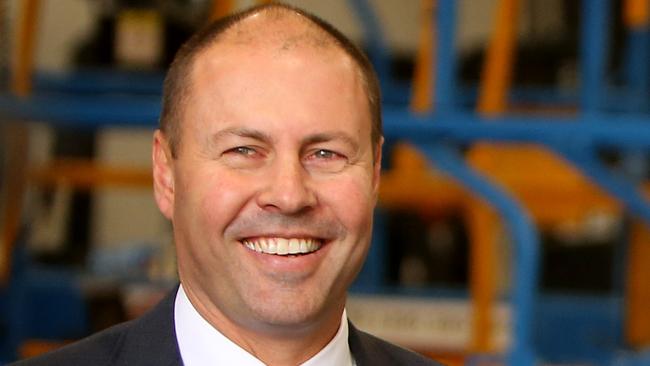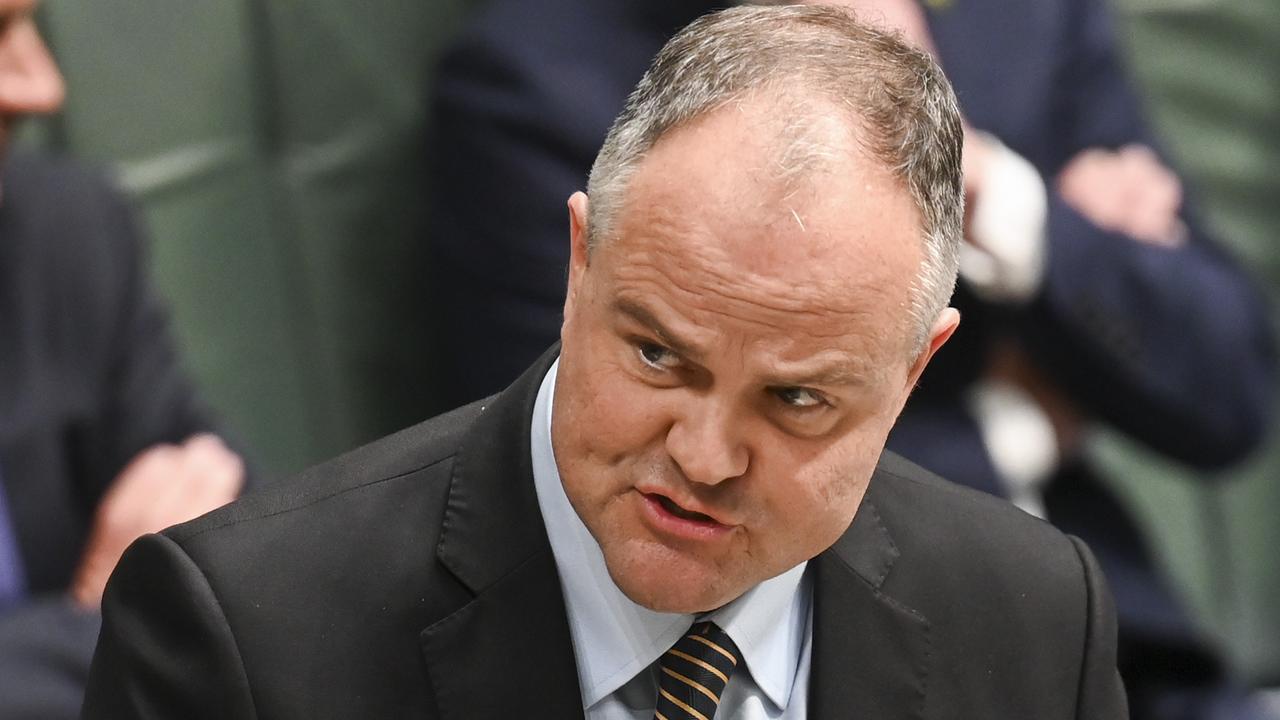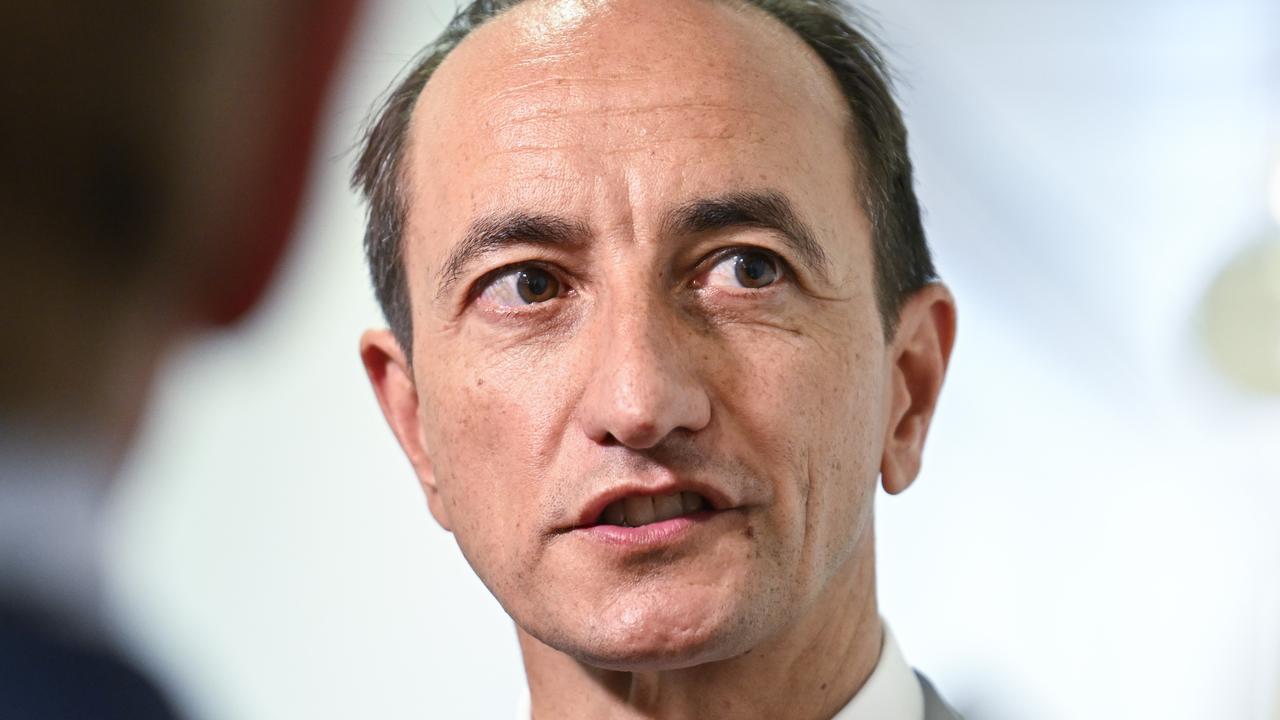Frydenberg warns: don’t risk surplus on fiscal stimulus
Josh Frydenberg repudiates calls for more fiscal stimulus, warning the surplus would be at risk.

Josh Frydenberg has repudiated calls for the government to provide further fiscal stimulus to the economy, declaring it would put the surplus at risk and represent a major misreading of the Reserve Bank’s calls for action to help boost growth.
The warning from the Treasurer came as leading economists said Australia was not experiencing a big economic slowdown and cuts to tax and interest rates represented a significant stimulus that could not be made available again if economic circumstances worsened.
Deloitte Access Economics economist Chris Richardson said further fiscal stimulus would be like “cashing in insurance that could be used at any stage” while Griffith University economics professor Tony Makin said the government should consider a range of “supply-side” measures to boost economic growth, including doing more on industrial relations and cutting red tape.
Coalition MPs yesterday backed calls from business and industry leaders for industrial relations reform, revealed in The Australian yesterday, but they urged in favour of “evolutionary, but not revolutionary” changes to workplace laws while steering clear of any big Work Choices-style shake-up.
Mr Frydenberg said Reserve Bank governor Philip Lowe’s call for government action to help buttress economic growth had been misinterpreted as a call to provide fiscal stimulus when Dr Lowe had really been advocating for structural reforms to help drive down unemployment.
“People should be careful in how they interpret what the Reserve Bank governor has said,” Mr Frydenberg said.
“The RBA has been quite clear that it has cut the official cash rate because it is keen ‘to support employment growth’.
“Governor Lowe has also publicly stated that the RBA’s ‘central scenario for the Australian economy remains reasonable, with growth around trend expected’.”
Dr Lowe said last week it was appropriate for the government to be thinking about further investments in infrastructure, “especially with interest rates at a record low, the economy having spare capacity and some of our existing infrastructure struggling to cope with ongoing population growth”.
Mr Richardson said yesterday Australia was already doing a lot to stimulate the economy.
“We’re cashing in insurance that could be used at any stage,” Mr Richardson said. “If at some point a real crisis hits Australia, we’ll have less wriggle room in the Reserve Bank and the government. We need to remember that there may be a time when the Australian economy needs help a lot more than we need it today.
“The more we do now, the less we have available down the track.”
Professor Makin said industrial relations reform was the “most important” supply-side measure the government could pursue.
“Certainly cutting regulation has also been a big stimulus factor in the US as engineered by the Trump administration,” Professor Makin said.
Mr Richardson said he agreed with the need for economic reform, but reforms in areas other than industrial relations, such as energy policy, would make a more significant difference to productivity.
Mr Frydenberg lashed out at Labor demands for greater action to stimulate the economy, saying the government’s $158 billion income tax cut package — coupled with consecutive interest rate reductions and a loosening of bank lending standards — was already “creating jobs and helping the Australian economy to grow”.
“They (Labor) claim a weakened economy yet on the other hand have $387bn in higher taxes as their solution,” he said. “They are talking up stimulus and at the same time saying how important surpluses are to the economy.”
Labor’s Treasury spokesman, Jim Chalmers, said the government needed to take responsibility for the “feeble economic growth on its watch”, and had “absolutely no excuses” for not delivering the promised surplus.
“Whether the current settings are enough remains to be seen, but the Liberals have proven entirely incapable of managing the economy in the nation’s interests,” Dr Chalmers said.
“The RBA has been crying out for help, and the government has vacated the field.
“Labor has been making constructive and responsible suggestions on how to help grow the economy without jeopardising the surplus, including bringing forward important infrastructure investment.”
Tony Abbott’s former workplace relations minister Eric Abetz said he backed a six-point “wishlist” published by Ai Group chief executive Innes Willox and Australian Mines and Metals Association chief executive Steve Knott in The Australian yesterday.
The list included an overhaul to the better-off-overall test for enterprise agreements, a clear definition of a casual employee to be inserted into the Fair Work Act, a review of unfair dismissal laws and a new mechanism allowing enterprise agreements for major projects to apply to the life of the project’s construction.
The government also has legislation before the parliament that would make it easier to ban union officials and deregister unions that do not comply with the law, as well as changes that would uphold better financial governance arrangements for registered organisations.
Senator Abetz said he thought that “sensible” industrial relations changes had a better chance of passing the new Senate than when he served as Mr Abbott’s government leader in the upper house, suggesting that some proposals could now be revisited.
“There are still reforms from back in the Productivity Commission report into workplace relations from 2015 which could not get past,” he said.
Anthony Albanese criticised the call to overhaul the industrial relations system, saying wage increases should be the main focus of IR reform.
The Opposition Leader said the recently announced review of the industrial relations system being conducted by Attorney-General Christian Porter was seeking to undermine workers’ rights.
“This is a government that is obsessed with further undermining workers’ entitlements,” Mr Albanese said. “That’s its agenda. They don’t like trade unions. They don’t like organised labour. What economists are saying is missing in our industrial relations system at the moment is wage increases.
“That’s what they’re saying … that is really holding back our national economy, that wage stagnation which is there is placing pressure on individual families to pay for the essentials and the like, put food on the table of their families, pay their bills.”
Liberal MP Jason Falinski said a broad suite of smaller, more practical workplace reforms would better help boost productivity than an ideological, Work Choices-style approach.
“Something ideological is not going to cut it … our main problem is simply that most of our IR laws are from the early 19th century,” he said.
“Enterprise agreements should be placed for the length of the project instead of a four-year block to allow a better capacity for unions and employers to work together throughout the project’s course.
“There are other things like allowing an employee request their employment records to be sent via email instead of the union having to come on site for them.”



